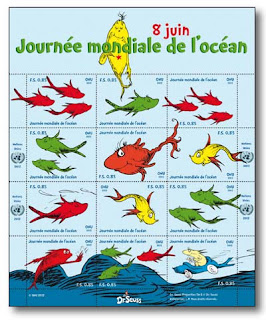World Oceans Day is observed annually on June 8th to raise awareness about the importance of the world's oceans and to promote the sustainable management and conservation of marine resources. It serves as a reminder of the vital role that oceans play in supporting life on Earth and the need to protect them for future generations.
World Oceans Day was officially recognized by the United Nations in 2008 and has since gained global significance. The day brings together governments, organizations, communities, and individuals worldwide to engage in activities and initiatives that promote ocean conservation and sustainability.
The objectives of World Oceans Day include:
Educating and raising awareness: The day provides an opportunity to educate people about the importance of oceans, marine ecosystems, and the threats they face. It aims to create a greater understanding of the role individuals can play in preserving oceans and marine life.
Advocating for sustainable practices: World Oceans Day encourages individuals and organizations to take action towards sustainable practices, such as reducing plastic pollution, promoting responsible fishing, and protecting marine habitats.
Promoting international cooperation: The day promotes international cooperation and collaboration among governments, organizations, and communities to address the challenges facing the world's oceans and work towards their conservation.
Celebrating the beauty and value of oceans: World Oceans Day also serves as a celebration of the beauty, diversity, and abundance of the world's oceans. It highlights the intrinsic value of oceans and their significance for the planet's well-being.









